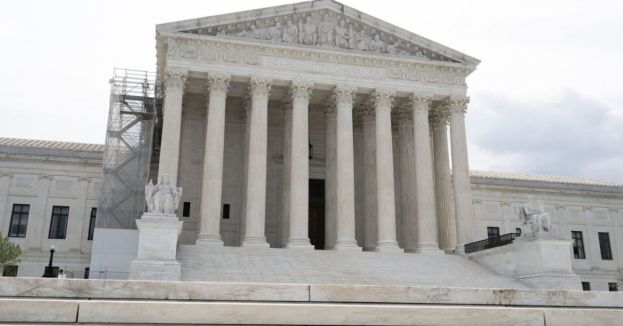The decision overturns the Court's previous ruling in the Bakke case in 1978, which upheld affirmative action in college admissions. Conservatives have long argued that the Constitution does not allow for any form of racial preference.
The Equal Protection Clause of the Fourteenth Amendment prohibits states from denying any person within their jurisdiction the equal protection of the laws.
June 30, 2023
While the Fourteenth Amendment applies only to state governments, Title VI of the Civil Rights Act of 1964 extends racial discrimination to institutions that receive federal funding, including most private universities.
WATCH: AT WHAT POINT WE WILL TAKE THEM SERIOUSLY?![]()
Students For Fair Admission filed lawsuits against both public and private schools, and the Supreme Court selected two cases to review: a challenge to the admissions policy of the University of North Carolina (UNC) under the Fourteenth Amendment, and a challenge to Harvard's policy under Title VI.
WATCH: BRITAIN'S HEAVIEST MAN HAS PASSED AWAY AT 33![]()
In a 6-3 decision, the Supreme Court ruled that both UNC's and Harvard's admissions policies are unconstitutional. Chief Justice John Roberts, writing the majority opinion, stated that "the Harvard and UNC admissions programs cannot be reconciled with the guarantees of the Equal Protection Clause." The opinion emphasized that any benefits given to students based on their race must be tied to their individual experiences and abilities, rather than their racial background.
PASTOR DODGES BULLET MID-SERMON AFTER MAN "SEES SPIRITS" AND OPENS FIRE![]()
Justice Clarence Thomas, who joined Roberts' opinion, also wrote separately to highlight the constitutional principle at stake. He emphasized that the Constitution is color-blind and does not tolerate classes among citizens.
This decision marks a significant shift in the Court's stance on affirmative action and racial preferences in college admissions. It sets a precedent that will likely impact similar policies in other areas of law and public policy.
The ruling has sparked a debate about the role of race in college admissions and the broader implications for diversity and equality. Supporters of affirmative action argue that it is necessary to address historical disadvantages and promote diversity on college campuses. Critics argue that it perpetuates racial discrimination and undermines the principle of equal treatment under the law.
MAN'S UNEXPECTED CONFESSION ON SIDE OF OKLAHOMA HIGHWAY SHAKES UP 5-YEAR-OLD COLD CASE![]()
The Supreme Court's decision is expected to have a significant impact on college admissions policies across the country. Universities will need to reassess their practices to ensure compliance with the Constitution and the principles of equal protection.
MORE CHINESE NATIONALS CAUGHT CROSSING U.S. BORDER IN 2 DAYS THAN ALL OF 2021![]()
The decision emphasizes the importance of treating individuals based on their unique experiences and abilities, rather than their race. It sets a precedent that will likely impact similar policies in other areas of law and public policy.
The ruling has sparked a broader debate about the role of race in college admissions and the implications for diversity and equality. Universities will need to reassess their practices to ensure compliance with the Constitution and the principles of equal protection.








 Discover alternative ideas that will make you think
Discover alternative ideas that will make you think Engage in mind bending debate
Engage in mind bending debate Earn points, rise in rank, have fun
Earn points, rise in rank, have fun


